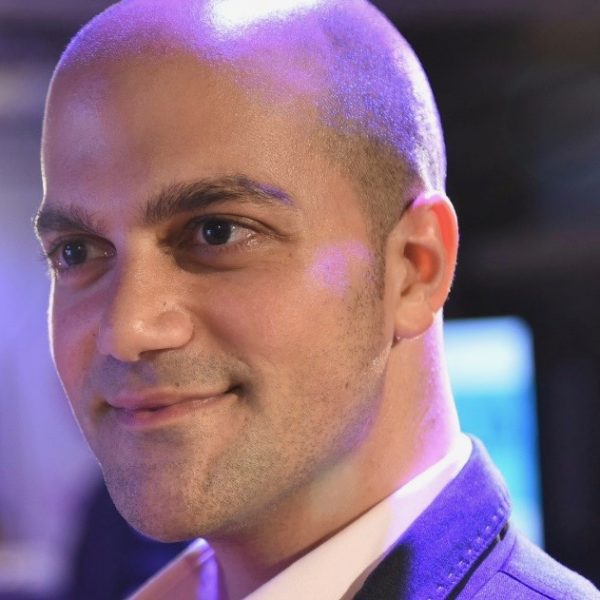Katarzyna Zachariasz-Podolak: How many fintech start-ups are in Israel?
Nir Netzer: It’s easy: more than 500. Actually we’ve met with them all.
How many banks do you have?
Tal Sharon: There are two major banks and several smaller ones.
One might expect in such a situation it is start-ups not banks which drive innovations in Israel.
Tal: In fact it’s a little bit of both. The innovative ecosystem is very vibrant. Banks compete with one another on how to build innovation. Every month one bank launches something new – a new feature, a new app for smart checking account or transferring funds in a more convenient way. When banks try to find new solutions, it generates interest for entrepreneurs to build new products and companies.
On the other side we have a lot of global entities coming to Israel in search of innovation. It makes entrepreneurs see what problems we face globally and look for new solutions.
In CEE regional banks often stress they can’t be as innovative as they wish because they face regulatory obstacles
Tal: Regulation is always an issue in the banking system. In Israel competition between banks is so strong that even they work with regulators and do what they can to mitigate regulation. Israeli regulators are very open to new technologies. They sit with companies and banks to see how they can help in marketing growth. Even in our company we host sessions with regulators and start-ups to talk about the latest developments.
Why has fintech grown so much in Israel?
Nir: There are several reasons. The main one is massive support from our government. Israel invest many funds in technology, there are many VCs .
Tal: 20 percent of our GDP is going towards R&D. That’s a very high number.
Nir: The other thing is cybersecurity. In fact it was cybersecurity that created the fintech ecosystem. It has been already here for 10 years. It is a very progressive topic. It opened the doors to other fintech solutions.
The next factor is entrepreneurial spirit. Many Israeli entrepreneurs, whatever they operate in Israel or from other countries, are highly successful. Probably it’s related to our mandatory service in army and our geographical area – being a small state means you have to export technologies.
Tal: Israel doesn’t even have 9 millon people. So start-ups start by focusing on problems on the global market. Only 10 percent of our start-ups provide services in Israel. The majority are working abroad in the US, Europe, Asia, Australia, and Africa.
What trends in fintech can you see?
Nir: The strongest one, especially in the Central and Eastern Europe, is cybersecurity. Financial institutions buy all kinds of applications related; for example; to authentication or antifraud. It’s an interesting situation because it is a change of regulation which enforce banks to introduce new solutions that comply with the new rules.
Another strong trend is getting to know your client better. We can see high demand for applications or platforms to onboard new clients, improve mobile services, engage new clients through mobile channels.
Also banks need backend solutions that hold them to assessing different risks, for example automatic underwriting or all kinds of technological solutions that will help banks to give loans to bigger audiences, including audiences that are not necessary their current clients. Especially industry in the CEE regions wants such things.
It’s rather regional trend, not a global one?
Nir: It’s global , but we see a different angel in the CEE region, because there are many unbanked people. For example in Poland it’s about 22 per cent. If they don’t have bank account and they need a loan, banks can not estimate the risk and consequently it cannot lend them money. That is why banks are looking for alternative ways to assess risk. Imagine that bank checks your phone records to see what is your usage or mobile behaviour, for example do you purchase on line or do you pay your bills on time. On this basis a bank makes alternative assessment for your credit scoring.
Tal: These are not the only unbanked people. There is also a very large group of people, who have bank account, but they can’t receive financial services because they don’t have enough history to their accounts. For these they have to have alternatives, to make underwriting and authentication to really help them get loans; to buy an apartment or whatever they need. This is a place for fintech solutions.
What is the future for fintech?
Nir: I would say blockchain. It will revolutionise the way that people transfer information and make financial transactions in a decentralised way , when data is highly secured and there is no need to have it in single server.
Tal: Blockchain was started as disruptive protocol to bypass banking systems. Recently we hosted events with our community where we got one of Israeli’s biggest bank. Blockchain technology was implemented in this bank to be provided to customers. It was a very unique to see that blockchain application was implemented in financial institution and not going around it. This shift we see in entire fintech from B2C to B2B.
Nir Netzer – the Founding Partner of Equitech Financial Consulting and a Co-founder of FinTech-Aviv community.
Tal Sharon – Managing Director at Equitech Financial Consulting and Co-founder of FinTech-Aviv











